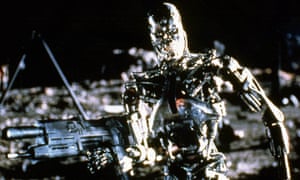
Rapid advances in artificial intelligence technology are raising ethical questions, as pointed out by Dr Jason Millar (“The momentous advance in artificial intelligence demands a new set of ethics”, Comment).
He asks whether it is desirable to develop autonomous systems that operate beyond human control. Other ethical dilemmas may arise sooner than we think. While many have poured scorn on the idea that robots could possess consciousness, if consciousness can be interpreted as an algorithm – a series of logical cause-and-effect statements – then, because the output of an algorithm is platform-independent, there is no reason in principle why that algorithm should not operate in a robot.
There is a debate as to whether brain activity is algorithmic, but other forms of biological information processing are and there is no convincing evidence to the contrary. Nobody has described an algorithm for consciousness, but it is possible to conceive algorithms that, once they have crossed a complexity threshold, might evolve into consciousness, which is presumably what happened in the late evolution of the human brain. Is it desirable to publish such algorithms? We need to think through the ethical implications first.Robert Jackson
Whittlesford
Cambridgeshire
THE OBSERVER
No comments:
Post a Comment